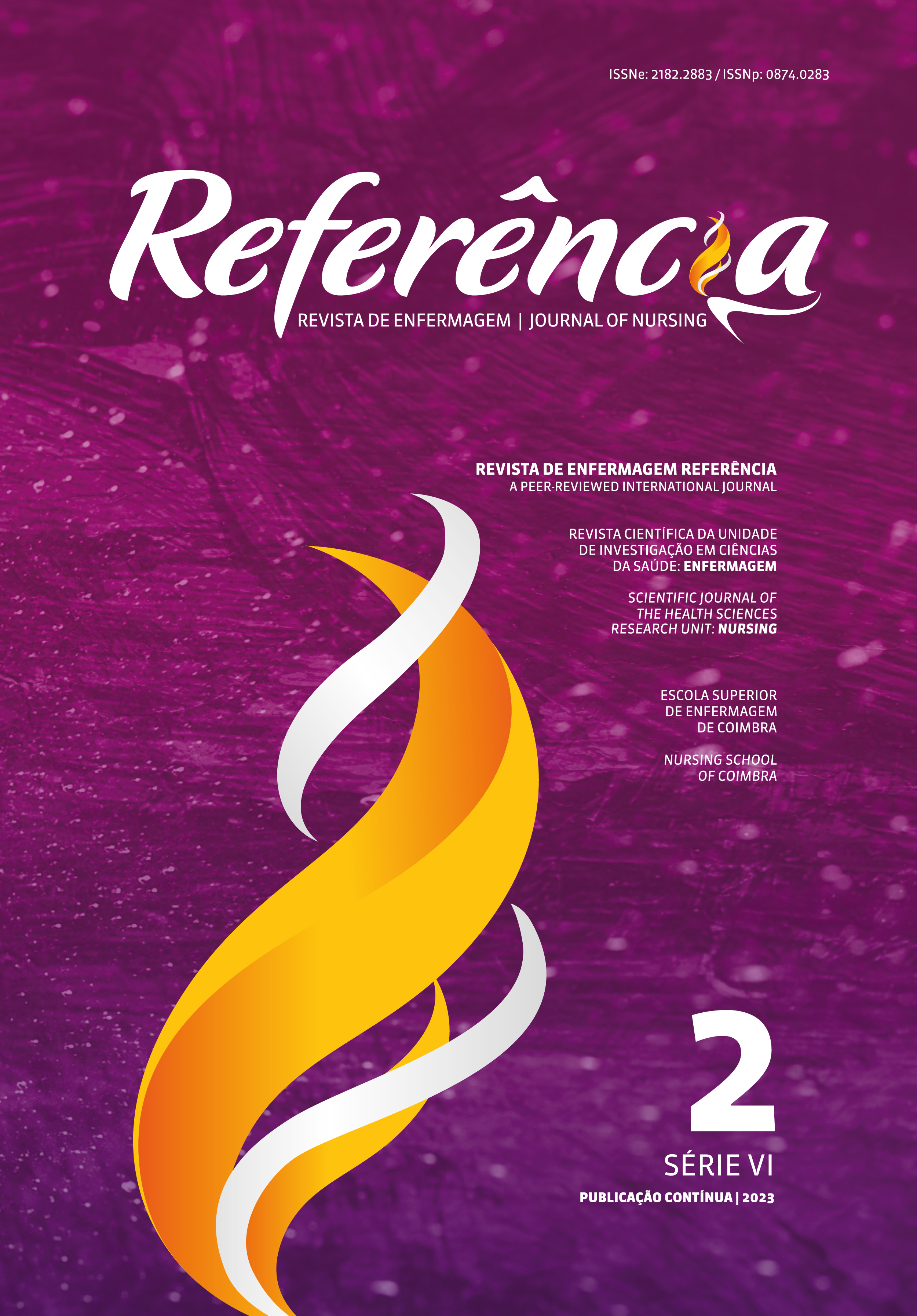Knowledge of the multidisciplinary team about neonatal post-resuscitation care
DOI:
https://doi.org/10.12707/RVI23.39.30330Keywords:
patient care team, asphyxia neonatorum, cardiopulmonary resuscitationAbstract
Background: The multidisciplinary team caring for at-risk newborns should identify the risk factors for asphyxia early on. The team should be prepared for cardiopulmonary resuscitation and post resuscitation care and have theoretical knowledge, practical skills, and ethical behaviors to minimize adverse events and provide safe care.
Objective: To assess the knowledge of the multidisciplinary team about neonatal post-resuscitation care.
Methodology: Cross-sectional study in a neonatal unit in Fortaleza-CE-Brazil. A questionnaire was administered to the multidisciplinary team, selected by convenience, and analyzed using the positivity index.
Results: The team consisted mostly of women, aged 30 to 40 years, with a postgraduate degree, who had witnessed neonatal cardiorespiratory arrest and had attended a training course. They had an adequate knowledge positivity index (99.1%) regarding vital signs and oxygen saturation; borderline knowledge of blood gas dosage (71.8%), and poor knowledge (20.9% to 60.0%) about monitoring central venous pressure, urine output, blood glucose, and cardiac enzymes. Participants suggested using hard technologies, with only one professional recommending soft/relational technologies.
Conclusion: There is a need for effective professional training, continuing education, and awareness raising interventions to promote a holistic approach to newborn care.
Downloads
References
Almeida, M. F., Kawakami, M. D., Moreira, L. M., Santos, R. M., Anchieta, L. M., & Guinsburg, R. (2017). Early neonatal deaths associated with perinatal asphyxia in infants =2500 g in Brazil. Jornal de Pediatria, 93(6), 576-584. https://doi.org/10.1016/j.jped.2016.11.008
American Heart Association. (2020). Highlights of the 2020 American Heart Association guidelines for CPR and ECC. https://cpr.heart.org/-/media/cpr-files/cpr-guidelines-files/highlights/hghlghts_2020_ecc_guidelines_english.pdf
Berg, K. M., Bray, J. E., Ng, K.-C., Liley, H. G., Greif, R., Carlson, J. N., Morley, P. T., Drennan, I. R., Smyth, M., Scholefield, B. R., Weiner, G. M., Cheng, A., Djärv, T., Abelairas-Gómez, C., Acworth, J., Andersen, L. W., Atkins, D. L., Berry, D. C. Bhanji, F., … Hansen, C. M. (2023). International consensus on cardiopulmonary resuscitation and emergency cardiovascular care science with treatment recommendations: Summary from the basic life support; advanced life support; pediatric life support; neonatal life support; education, implementation, and teams; and First Aid Task Forces. Resuscitation. https://doi.org/10.1016/j.resuscitation.2023.109992
Carvalho, E. C., Oliveira-Kumakura, A. R., & Morais, S. C. (2017). Clinical reasoning in nursing: Teaching strategies and assessment tools. Revista Brasileira de Enfermagem, 70(3), 662-668. https://doi.org/10.1590/0034-7167-2016-0509
Elm, E., Altman, D. G., Egger, M., Pocock. S. J., Gøtzsche, P. C., & Vandenbroucke, J. P. (2007). Strengthening the reporting of observational studies in epidemiology (STROBE) statement: Guidelines for reporting observational studies. British Medical Journal, 335(7624), 806-808. https://doi.org/10.1136/bmj.39335.541782.AD
Fundação Oswaldo Cruz. (2019). Principais questões sobre cuidados pós-reanimação neonatal. https://portaldeboaspraticas.iff.fiocruzbr/atencao-recem-nascido/principais-questoes-cuidados-pos-reanimacao-neonatal/
Gamboa, O. A., Agudelo, S. I., Maldonado, M. J., Leguizamón, D. C., & Cala, S. M. (2018). Evaluation of two strategies for debriefing simulation in the development of skills for neonatal resuscitation: A randomized clinical trial. BMC Research Notes, 11(1), 739. https://doi.org/10.1186/s13104-018-3831-6
Haddad, M. C., & Évora, Y. D. (2008). Nursing care quality: The view from a patient hospitalized in a public university hospital. Ciência, Cuidado e Saúde, 7(1), 45-52. https://doi.org/10.4025/ciencuidsaude.v7i0.6559
Mauricio, E. C., Lopes, M. C., Batista, R. A., Okuno, M. F., & Campanharo, C. R. (2018). Results of the implementation of integrated care after cardiorespiratory arrest in a university hospital. Revista Latino-Americana de Enfermagem, 26, e2993. https://doi.org/10.1590/1518-8345.2308.2993
Melo, K. A., Silva, T. C., Bandeira, F. L., Andrade, J. M., Ribeiro, J. F., Bandeira, L. F., & Hirata, J. P. (2021). Reanimação neonatal: Atuação da equipa de enfermagem na unidade de terapia intensiva. Revista de Enfermagem Atual In Derme, 95(34), e-021066. https://revistaenfermagematual.com/index.php/revista/article/view/974/897
Migoto, M. T., Oliveira, R. P., Silva, A. M., & Freire, M. H. (2018). Early neonatal mortality and risk factors: A case-control study in Paraná State. Revista Brasileira de Enfermagem, 71(5), 2527-2534. https://doi.org/10.1590/0034-7167-2016-0586
Ministério da Saúde & Conselho Nacional de Saúde. (2012). Resolução n.º 466, de 12 de dezembro de 2012. https://bvsms.saude.gov.brbvs/saudelegis/cns/2013/res0466_12_12_2012.html
Ministério da Saúde. (2021). Ofício circular n.º 2/2021/CONEP/SECNS/MS, de 24 de fevereiro de 2021. Secretaria Executiva do Conselho Nacional de Saúde; Comissão Nacional de Ética em Pesquisa. http://conselho.saude.gov.br/images/Oficio_Circular_2_24fev2021.pdf
National Association of Emergency Medical Technicians. (2017). PHTLS-Prehospital Trauma Life Support (8th ed.). Jones & Bartlett Learning.
Neto, G. F., Ferraz, R. A., Santo, A. C., Abraão, L. S., Pedroso, M. G., & Ferreira, N. B. (2022). Advanced maneuvers in neonatal resuscitation at a hospital in the amazon region: Associated factors. Brazilian Journal of Health Review, 5(5), 18020-18032. https://doi.org.10.34119/bjhrv5n5-017
Pedroso, K. Z., Ribeiro, D. P., Silva, E. G., Borges, M., & Silva, N. T. (2021). Morte materna e neonatal: Um desafio para sua redução. Revista Multidisciplinar em Saúde, 2(4), 13. https://doi.org/10.51161/rems/2438
Pescador Chamorro, M. I., Zeballos Sarrato, S. E., Marsinyach Ros, M. I., Zeballos Sarrato, G., Márquez Isidro, E. M., & Sánchez Luna, M. (2022). Training, experience and need of booster courses in neonatal cardiopulmonary resuscitation: Survey to pediatricians. Anales de Pediatria, 96(2),122-129. https://doi.org/10.1016/j.anpede.2020.11.014
Saupe, R., & Horr, L. (1982). Auditoria em enfermagem. Revista de Ciências da Saúde, 1(1), 23. https://revista.ccs.ufsc.br/index.php/REVCCS/issue/current
Servo, M. L., Alves, L. M., & Almeida, D. B. (2021). From subjacency to the lack of involvement of the nursing process in the construction of nurses’ professional identity. Revista de Enfermagem Referência, 5(8), e20180. https://doi.org/10.12707/RV20180
Sociedade Brasileira de Cardiologia. (2019). Atualização da diretriz de ressuscitação cardiopulmonar e cuidados cardiovasculares de emergência da Sociedade Brasileira de Cardiologia: 2019. Arquivos Brasileiros de Cardiologia 113(3), 449-663. https://doi.org.10.5935/abc.20190203
Wyckoff, M. H., Wyllie, J., Aziz, K., Almeida, M. F., Fabres, J., Fawke, J., Guinsburg, R., Hosono, S., Isayama, T., Kapadia, V. S, Kim, H. S., Liley, H. G., McKinlay, C. J., Mildenhall, L., Perlman, J. M., Rabi, Y., Roehr, C. C., Schmölzer, G. M., Szyld, E., … Neonatal Life Support Collaborators. (2020). Neonatal life support 2020 international consensus on cardiopulmonary resuscitation and emergency cardiovascular care science with treatment recommendations. Circulation, 156, A156-A187. https://doi.org/10.1016/j.resuscitation.2020.09.015






















